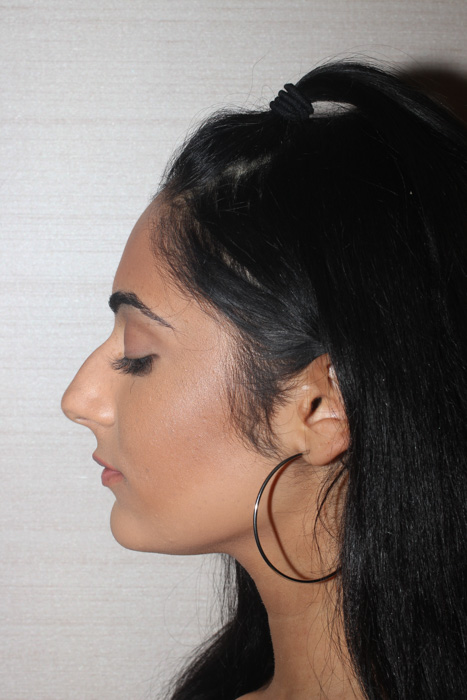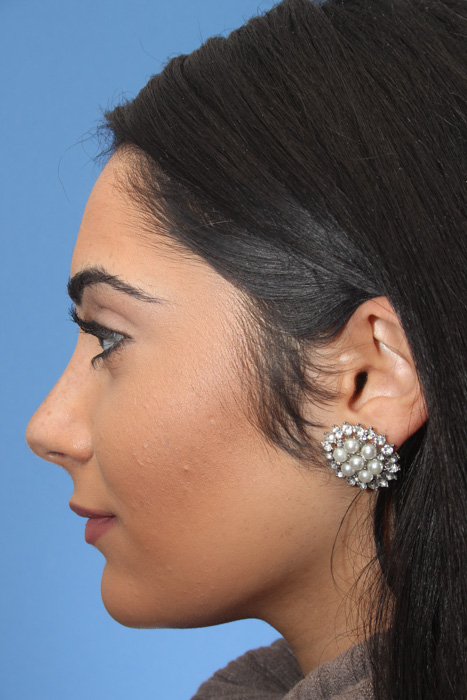Although you will likely feel a little tired and groggy following your rhinoplasty procedure, you may have difficulty sleeping immediately afterwards due to discomfort or fear of inadvertently damaging your nose. While it is important to take great care in order to be sure that you do not accidentally injure your nose, it is also necessary to get plenty of sleep as your body heals. The following tips will help you sleep soundly while also ensuring that your results are not jeopardized.
Sleeping on your back with your head and shoulders propped up with pillows is advised for at least 3 days directly after your procedure. The elevation will not only make it easier for you to get up without straining, but will alleviate swelling, congestion, and the pooling of blood in the area. Although it may take some getting used to if you are typically a side or stomach sleeper, sleeping on your back postoperatively will make it easier to breath, enabling you to sleep more comfortably. Travel pillows or rolled up towels can also help you keep your head from moving.
It is best to try to stay in one position as you sleep, however, many people naturally toss and turn throughout the night or as they fall asleep. In the event that you wake up on your side or stomach, there is no need to panic. The surgical dressing and nasal splint applied after your procedure will help to protect your nose and prevent it from shifting as you sleep. Thus, sleeping on your side or stomach will not likely negatively impact your results, but it is important to be aware that it may result in additional swelling and/or bruising, thereby prolonging your recovery.

Although many patients are understandably anxious about the recovery process, Dr. Philip Solomon, an experienced and trusted Otolaryngologist, Head and Neck Surgeon subspecializing in Facial Plastic surgery in Toronto, will be there to support you through each step of the process.
Prior to your procedure your surgeon will prescribe pain medication to help you manage any postoperative pain. Though many patients don’t require anything stronger than regular strength Tylenol, if needed, Tylenol #3 taken before bed may also help you to sleep more comfortably.
It’s best to discontinue pain medication when it’s no longer needed, however taking prescribed medication in the first few days after rhinoplasty, can help you manage your pain and minimize your discomfort throughout your recovery. A good night’s sleep is important to help reduce tossing and turning that could potentially affect your rhinoplasty result.
To minimize the risk of injuring your nose while you’re sleeping during the early stages of your recovery, you may want to sleep alone for the first few nights, particularly if your partner tends to move around a lot in his or her sleep. Sleeping alone may also help you have a more restful sleep, as you will not be disturbed when your partner moves or gets up during the night.
To learn more about rhinoplasty surgery and the recovery process, we welcome you to contact our clinic today at 905-764-7799 to schedule a consultation at the Solomon Nasal and Facial Plastic Surgery Centre in Thornhill, just north of Toronto.
View Dr. Solomon’s Cosmetic Surgery
Before & After Gallery
View: Rhinoplasty Photos
Please also visit Dr. Solomon’s information on Primary Rhinoplasty and Revision Rhinoplasty.
Learn more about Rhinoplasty.


In order to best assist you, we require all cosmetic patients to schedule a virtual or in-person consultation. There is a fee of $200 plus HST for all consultations. Your consultation fee will be credited towards your procedure and/or treatment. To schedule a consultation, please complete the attached form or call our office at 905-764-7799. We look forward to hearing from you.
